
人工智能北京共识(Beijing AI Principles)
发布者: Beijing Academy of Artificial Intelligence (BAAI); Peking University; Tsinghua University; Institute of Automation, Chinese Academy of Sciences; Institute of Computing Technology, Chinese Academy of Sciences; Artifical Intelligence Industry Innovation Strategy Alliance (AITISA); etc.
发布者类型: Academia, Non-profits and Non-Governmental Organizations
国家或地区: China
缩写: Beijing 2019
发表日期: May 25, 2019
内容列表:

阿西洛马人工智能原则(Asilomar AI Principles)
发布者: Future of Life Institute (FLI), Beneficial AI 2017
发布者类型: Academia, Non-profits and Non-Governmental Organizations
国家或地区: United States
缩写: FLI 2017
发表日期: Jan 3-8, 2017
内容列表:

新一代人工智能治理原则——发展负责任的人工智能(Governance Principles for the New Generation Artificial Intelligence Developing Responsible Artificial Intelligence)
发布者: National Governance Committee for the New Generation Artificial Intelligence, China
发布者类型: Governments and Intergovernmental Organizations
国家或地区: China
缩写: NGCNGAI 2019
发表日期: Jun 17, 2019

迪拜的人工智能原则(Dubai's AI Principles)
发布者: Smart Dubai
发布者类型: Governments and Intergovernmental Organizations
国家或地区: United Arab Emirates
缩写: Smart Dubai 2019
发表日期: Jan 08, 2019
内容列表:

人工智能行业自律公约(征求意见稿)(Joint Pledge on Artificial Intelligence Industry Self Discipline (Draft for Comment))
发布者: Artificial Intelligence Industry Alliance (AIIA), China
发布者类型: Industry
国家或地区: China
缩写: AIIA 2019
发表日期: May 31, 2019
内容列表:

面向儿童的人工智能北京共识(Artificial Intelligence for Children: Beijing Principles)
发布者: Beijing Academy of Artificial Intelligence (BAAI), Peking University, Tsinghua University and the Chinese Academy of Sciences, together with enterprises that focus on AI development.
发布者类型: Academia, Non-profits and Non-Governmental Organizations;Industry
国家或地区: China
缩写: Beijing Children 2020
发表日期: Sep 14, 2020

以人类为中心的人工智能的社会原则(Social Principles of Human centric AI)
发布者: Cabinet Office, Government of Japan
发布者类型: Governments and Intergovernmental Organizations
国家或地区: Japan
缩写: Cabinet Office 2018
发表日期: Dec 27, 2018
内容列表:

全球人工智能治理倡议
发布者: Cyberspace Administration of China
发布者类型: Governments and Intergovernmental Organizations
国家或地区: China
缩写: China Global 2023
发表日期: October 18, 2023
内容列表:
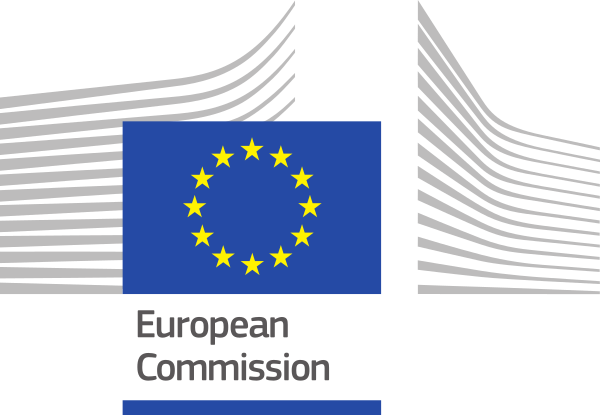
伦理原则和民主先决条件(Ethical principles and democratic prerequisites)
发布者: European Group on Ethics in Science and New Technologies, European Commission
发布者类型: Governments and Intergovernmental Organizations
国家或地区: Europe
缩写: EGE 2018
发表日期: Mar 9, 2018
内容列表:
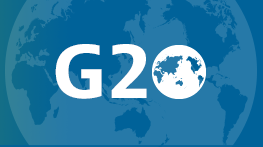
G20人工智能原则(G20 AI Principles)
发布者: G20 Ministerial Meeting on Trade and Digital Economy
发布者类型: Governments and Intergovernmental Organizations
国家或地区: International
缩写: G20 2019
发表日期: Jun 09, 2019
内容列表:

谷歌人工智能:我们的原则(Artificial Intelligence at Google: Our Principles)
发布者: Google
发布者类型: Industry
国家或地区: United States
缩写: Google 2018
发表日期: Jun 7, 2018
内容列表:

人工智能政策原则(AI Policy Principles)
发布者: Information Technology Industry Council (ITI)
发布者类型: Academia, Non-profits and Non-Governmental Organizations
国家或地区: United States
缩写: ITI 2017
发表日期: Oct 24, 2017
内容列表:

指导原则与建议(Guiding Principles and Recommendations)
发布者: Internet Society, "Artificial Intelligence and Machine Learning: Policy Paper"
发布者类型: Academia, Non-profits and Non-Governmental Organizations
国家或地区: United States
缩写: Internet Society 2017
发表日期: Apr 18, 2017

人工智能研发原则(AI R&D Principles)
发布者: Ministry of Internal Affairs and Communications (MIC), the Government of Japan
发布者类型: Governments and Intergovernmental Organizations
国家或地区: Japan
缩写: MIC 2017
发表日期: Jul 28, 2017
内容列表:

人工智能利用原则草案(Draft AI Utilization Principles)
发布者: Ministry of Internal Affairs and Communications (MIC), the Government of Japan
发布者类型: Governments and Intergovernmental Organizations
国家或地区: Japan
缩写: MIC 2018
发表日期: Jul 17, 2018
内容列表:

蒙特利尔人工智能负责任开发宣言(The Montreal Declaration for a Responsible Development of Artificial Intelligence)
发布者: University of Montreal
发布者类型: Academia, Non-profits and Non-Governmental Organizations
国家或地区: Canada
缩写: Montreal 2018
发表日期: Dec 4, 2018
内容列表:

人工智能十条原则(10 AI rules)
发布者: Satya Nadella, CEO of Microsoft
发布者类型: Industry
国家或地区: United States
缩写: Nadella 2016
发表日期: Jun 28, 2016
内容列表:
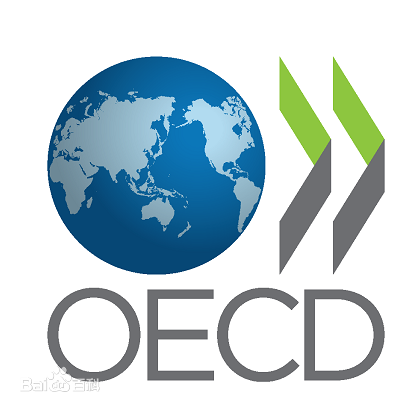
经合组织人工智能原则(OECD Principles on Artificial Intelligence)
发布者: The Organisation for Economic Co-operation and Development (OECD)
发布者类型: Governments and Intergovernmental Organizations
国家或地区: International
缩写: OECD 2019
发表日期: May 22, 2019
内容列表:

人工智能伦理使用原则[草案]
发布者: Government of Ontario, Canada
发布者类型: Governments and Intergovernmental Organizations
国家或地区: Canada
缩写: Ontario 2023
发表日期: Sept 14, 2023

人工智能伦理准则(Artificial Intelligence Code of Ethics)
发布者: AI Alliance Russia
发布者类型: Governments and Intergovernmental Organizations
国家或地区: Russia
缩写: Russia 2021
发表日期: Oct 26, 2021
内容列表:

人工智能伦理准则(修订)(AI Ethics Code (revised version))
发布者: AI Alliance Russia
发布者类型: Governments and Intergovernmental Organizations
国家或地区: Russia
缩写: Russia 2022
发表日期: Oct 21, 2022 (unconfirmed)
内容列表:

人工智能安全发展上海倡议(Shanghai Initiative for the Safe Development of Artificial Intelligence)
发布者: Shanghai Advisory Committee of Experts on Artificial Intelligence Industry Security
发布者类型: Academia, Non-profits and Non-Governmental Organizations
国家或地区: China
缩写: SHAIISEAC 2019
发表日期: Aug 30, 2019

人工智能伦理准则
发布者: SDAIA
发布者类型: Government
国家或地区: Saudi Arab
缩写: Saudi Arab 2022
发表日期: Sept 14, 2022
内容列表:

特利亚电信公司的可信人工智能伦理指导原则(Telia Company Guiding Principles on trusted AI ethics)
发布者: Telia Company AB
发布者类型: Industry
国家或地区: Sweden
缩写: Telia 2019
发表日期: Jan 22, 2019

国防人工智能伦理原则(Ethical Principles for AI in Defence)
发布者: The Ministry of Defence (MOD), United Kingdom
发布者类型: Governments and Intergovernmental Organizations
国家或地区: United Kingdom
缩写: UK MOD 2022
发表日期: Jun 15, 2022
内容列表:

人工智能伦理问题建议书
发布者: The United Nations Educational, Scientific and Cultural Organization (UNESCO)
发布者类型: Governments and Intergovernmental Organizations
国家或地区: International
缩写: UNESCO 2021
发表日期: Nov 24, 2021

以儿童为中心的人工智能的要求(Requirements for child centred AI)
发布者: United Nations Children's Fund (UNICEF) and the Ministry of
发布者类型: Governments and Intergovernmental Organizations
国家或地区: International
缩写: UNICEF 2020
发表日期: Sep 16, 2020
内容列表:

卫生健康领域人工智能的核心伦理原则(Key ethical principles for use of artificial intelligence for health)
发布者: World Health Organization (WHO)
发布者类型: Governments and Intergovernmental Organizations
国家或地区: International
缩写: WHO 2021
发表日期: Jun 28, 2021
内容列表:
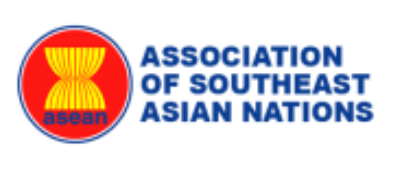
东盟人工智能治理与道德指南
发布者: ASEAN
发布者类型: Governments and Intergovernmental Organizations
国家或地区: ASEAN
缩写: ASEAN 2024
发表日期: 2024

人工智能伦理原则(AI Ethics Principles)
发布者: Department of Industry, Innovation and Science, Australian Government
发布者类型: Governments and Intergovernmental Organizations
国家或地区: Australia
缩写: Australia 2019
发表日期: Nov 7, 2019

德国电信的人工智能准则(Deutsche Telekom’s guidelines for artificial intelligence)
发布者: Deutsche Telekom
发布者类型: Industry
国家或地区: Germany
缩写: Deutsche Telekom 2018
发表日期: May 11, 2018
内容列表:
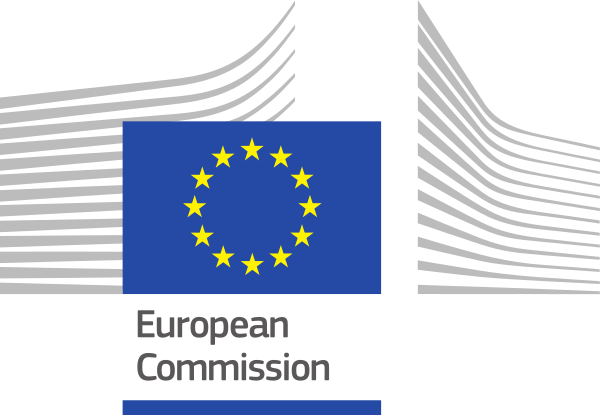
“可信赖的人工智能”的关键要求(Key requirements for trustworthy AI)
发布者: European Commission
发布者类型: Governments and Intergovernmental Organizations
国家或地区: Europe
缩写: EC 2019
发表日期: Apr 8, 2019
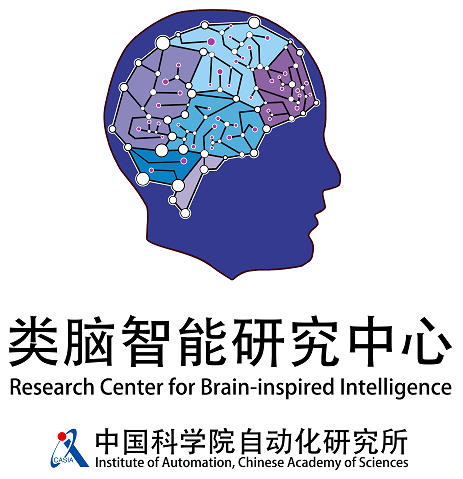
和谐人工智能原则:具体规范(Harmonious Artificial Intelligence Principles: Concrete Code)
发布者: HAIP Initiative
发布者类型: Academia, Non-profits and Non-Governmental Organizations
国家或地区: China
缩写: HAIP 2018
发表日期: Sep 16, 2018
内容列表:
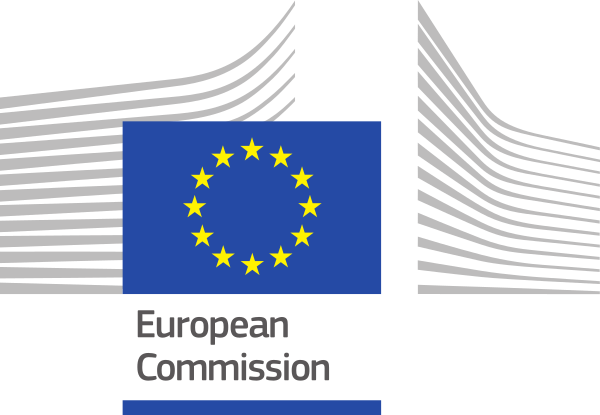
“可信赖的人工智能”伦理准则草案(Draft Ethics Guidelines for Trustworthy AI)
发布者: The European Commission’s High-Level Expert Group on Artificial Intelligence
发布者类型: Governments and Intergovernmental Organizations
国家或地区: Europe
缩写: HLEG 2018
发表日期: Dec 18, 2018
内容列表:
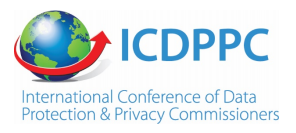
人工智能伦理与数据保护宣言(Declaration On Ethics And Data Protection In Artifical Intelligence)
发布者: 40th International Conference of Data Protection and Privacy Commissioners (ICDPPC)
发布者类型: Academia, Non-profits and Non-Governmental Organizations
国家或地区: International
缩写: ICDPPC 2018
发表日期: Oct 23, 2018
内容列表:

IDAIS 威尼斯
发布者: IDAIS (International Dialogues on AI Safety)
发布者类型: Academia, Non-profits and Non-Governmental Organizations
国家或地区: International
缩写: IDAIS 2024b
发表日期: Sept 5, 2024
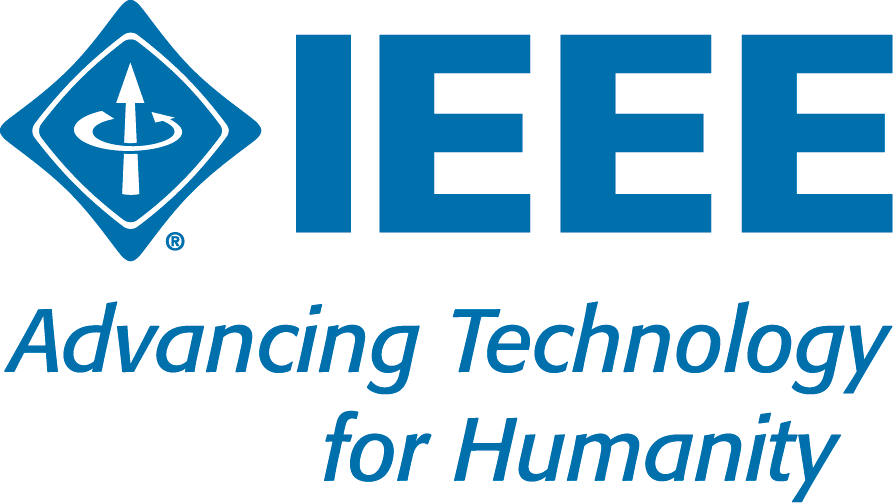
合乎伦理的设计:一般原则(Ethically Aligned Design (v2): General Principles)
发布者: The IEEE Global Initiative on Ethics of Autonomous and Intelligent Systems
发布者类型: Academia, Non-profits and Non-Governmental Organizations
国家或地区: International
缩写: IEEE 2017
发表日期: (v1) Dec 13, 2016. (v2) Dec 12, 2017

人工智能公共政策原则(AI public policy principles)
发布者: Intel
发布者类型: Industry
国家或地区: United States
缩写: Intel 2017
发表日期: Oct 18, 2017
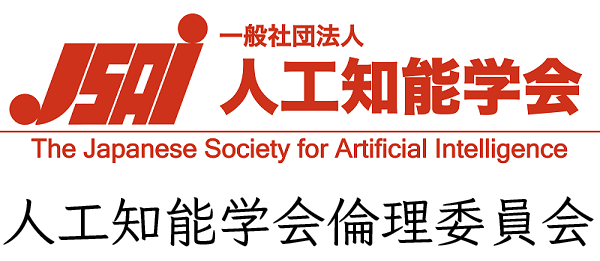
日本人工智能学会伦理准则(The Japanese Society for Artificial Intelligence Ethical Guidelines)
发布者: The Japanese Society for Artificial Intelligence (JSAI)
发布者类型: Academia, Non-profits and Non-Governmental Organizations
国家或地区: Japan
缩写: JSAI 2017
发表日期: Feb 28, 2017
内容列表:

蒙特利尔人工智能负责任开发宣言(The Montreal Declaration for a Responsible Development of Artificial Intelligence)
发布者: University of Montreal, Forum on the Socially Responsible Development of AI
发布者类型: Academia, Non-profits and Non-Governmental Organizations
国家或地区: Canada
缩写: Montreal 2017
发表日期: Nov 3, 2017

人工智能道德原则
发布者: Rebelliondefense
发布者类型: Industry
国家或地区: United States
缩写: Rebelliondefense 2023
发表日期: January 2023

中国青年科学家2019人工智能创新治理上海宣言(Chinese Young Scientists’ Declaration on the Governance and Innovation of Artificial Intelligence)
发布者: Youth Work Committee of Shanghai Computer Society
发布者类型: Academia, Non-profits and Non-Governmental Organizations
国家或地区: China
缩写: Shanghai YoungAI 2019
发表日期: Aug 29, 2019

索尼集团人工智能伦理准则(Sony Group AI Ethics Guidelines)
发布者: Sony Group
发布者类型: Industry
国家或地区: Japan
缩写: Sony 2018
发表日期: Sep 25, 2018
内容列表:

“可用、可靠、可知、可控”:人工智能的伦理框架("ARCC": An Ethical Framework for Artificial Intelligence)
发布者: Tencent Research Institute
发布者类型: Industry
国家或地区: China
缩写: Tencent 2018
发表日期: Sep 18, 2018
内容列表:

联合国系统内人工智能伦理使用原则
发布者: United Nations System Chief Executives Board for Coordination
发布者类型: Governments and Intergovernmental Organizations
国家或地区: International
缩写: UNCEB 2022
发表日期: Sept 20, 2022

人工智能伦理十大原则(Top 10 Principles For Ethical Artificial Intelligence)
发布者: UNI Global Union
发布者类型: Academia, Non-profits and Non-Governmental Organizations
国家或地区: International
缩写: UNI Global Union 2017
发表日期: Dec 11, 2017
内容列表:

美国情报体系人工智能伦理原则(Principles of Artificial Intelligence Ethics for the Intelligence Community)
发布者: Intelligence Community (IC), United States
发布者类型: Governments and Intergovernmental Organizations
国家或地区: United States
缩写: US IC 2020
发表日期: Jul 23, 2020
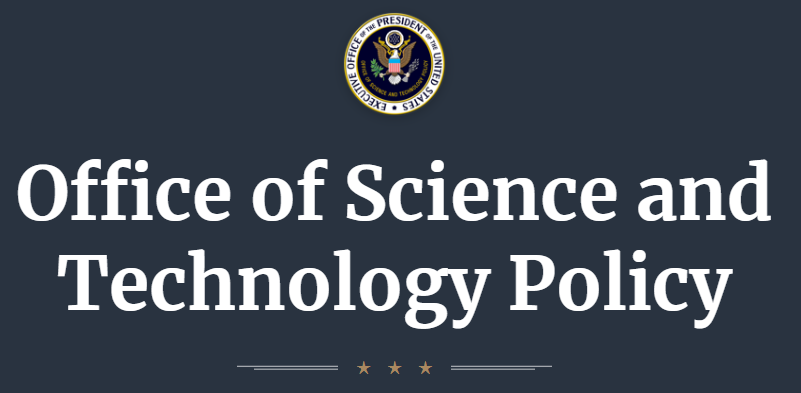
人工智能应用的监管原则(Principles for the Stewardship of AI Applications)
发布者: The White House Office of Science and Technology Policy (OSTP), United States
发布者类型: Governments and Intergovernmental Organizations
国家或地区: United States
缩写: US OSTP 2020
发表日期: Nov 17, 2020
内容列表:

人工智能应用的监管原则(Principles for the Stewardship of AI Applications)
发布者: The White House Office of Science and Technology Policy (OSTP), United States
发布者类型: Governments and Intergovernmental Organizations
国家或地区: United States
缩写: US OSTP 2020
发表日期: Nov 17, 2020
内容列表:
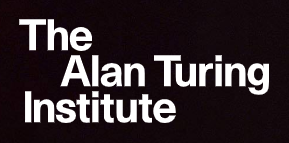
“快车道”原则(The FAST Track Principles)
发布者: The Alan Turing Institute
发布者类型: Academia, Non-profits and Non-Governmental Organizations
国家或地区: United Kingdom
缩写: Alan Turing Inst 2019
发表日期: Jun 10, 2019
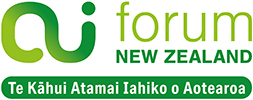
新西兰可信人工智能:人工智能原则(Trustworthy AI in Aotearoa: The AI Principles)
发布者: the Law, Society and Ethics Working Group of the AI Forum,New Zealand
发布者类型: Academia, Non-profits and Non-Governmental Organizations
国家或地区: New Zealand
缩写: Aotearoa 2020
发表日期: Mar 4, 2020

促进生物多样性保护的人工智能原则
发布者: International Research Center for AI Ethics and Governance, Instituteof Automation, Chinese Academy of Sciences,World Animal Protection Beijing Representative Office and other 7 entities
发布者类型: Academia, Non-profits and Non-Governmental Organizations
国家或地区: China
缩写: Biodiversity 2022
发表日期: August 25, 2022

面向工作场所人工智能的G20框架(Toward a G20 Framework for Artificial Intelligence in the Workplace)
发布者: Centre for International Governance Innovation (CIGI), Canada
发布者类型: Academia, Non-profits and Non-Governmental Organizations
国家或地区: Canada
缩写: CIGI 2018
发表日期: Jul 19, 2018

2024年中非互联网发展与合作论坛关于中非人工智能合作的主席声明
发布者: China Africa Internet Development and Cooperation Forum
发布者类型: Governments and Intergovernmental Organizations
国家或地区: China
缩写: China Africa 2024
发表日期: March 3, 2024
内容列表:

国防部人工智能伦理原则(AI Ethics Principles for DoD)
发布者: Defense Innovation Board (DIB), Department of Defense (DoD), United States
发布者类型: Governments and Intergovernmental Organizations
国家或地区: United States
缩写: DoDDIB 2019
发表日期: Oct 31, 2019

人工智能伦理准则(AI Code)
发布者: House of Lords of United Kingdom, Select Committee on Artificial Intelligence
发布者类型: Governments and Intergovernmental Organizations
国家或地区: United Kingdom
缩写: House of Lords 2018
发表日期: Apr 16, 2018
内容列表:
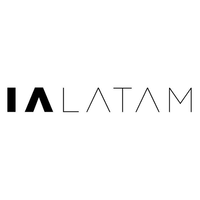
开发和使用人工智能的伦理宣言(Declaration Of Ethics For The Development And Use Of Artificial Intelligence (unofficial translation))
发布者: IA Latam
发布者类型: Academia, Non-profits and Non-Governmental Organizations
国家或地区: International
缩写: IA Latam 2019
发表日期: Feb 8, 2019 (unconfirmed)
内容列表:


关于处理人工智能使用产生的个人数据的建议
发布者: National Institute of Transparency, Access to Information and Protection of Personal Data (INAI)
发布者类型: Governments and Intergovernmental Organizations
国家或地区: Mexico
缩写: Mexico 2022
发表日期: May 8, 2022

现有人工智能伦理原则的汇编(A compilation of existing AI ethical principles (Annex A))
发布者: Personal Data Protection Commission (PDPC), Singapore
发布者类型: Governments and Intergovernmental Organizations
国家或地区: Singapore
缩写: PDPC Compilation 2020
发表日期: Jan 21, 2020
内容列表:

SAP的人工智能指导原则(SAP's Guiding Principles for Artificial Intelligence)
发布者: SAP
发布者类型: Industry
国家或地区: Germany
缩写: SAP 2018
发表日期: Sep 18, 2018
内容列表:

开发、应用和使用可靠且负责任的人工智能的道德准则
发布者: Republic of Serbia
发布者类型: Governments and Intergovernmental Organizations
国家或地区: Serbia
缩写: Serbia 2023
发表日期: Febrary, 2023

国家人工智能道德准则
发布者: The Ministry of Science and ICT (MSIT) and the Korea Information Society Development Institute (KISDI)
发布者类型: Governments and Intergovernmental Organizations
国家或地区: South Korea
缩写: South Korea 2020b
发表日期: Dec 23, 2020

西班牙电话公司的人工智能原则(AI Principles of Telefónica)
发布者: Telefónica
发布者类型: Industry
国家或地区: Spain
缩写: Telefonica 2018
发表日期: Oct 30, 2018

人工智能通用准则(Universal Guidelines for Artificial Intelligence)
发布者: The Public Voice coalition, established by Electronic Privacy Information Center (EPIC)
发布者类型: Academia, Non-profits and Non-Governmental Organizations
国家或地区: United States
缩写: The Public Voice 2018
发表日期: Oct 23, 2018
内容列表:

叠拓公司的人工智能伦理准则(Tieto’s AI ethics guidelines)
发布者: Tieto
发布者类型: Industry
国家或地区: Finland
缩写: Tieto 2018
发表日期: Oct 17, 2018
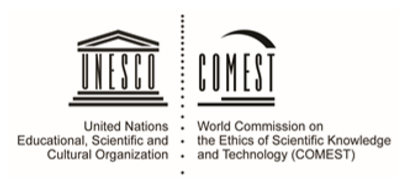
建议的人工智能的开发、实现和使用的通用原则
发布者: The Extended Working Group on Ethics of Artificial Intelligence (AI) of the World Commission on the Ethics of Scientific Knowledge and Technology (COMEST), UNESCO
发布者类型: Governments and Intergovernmental Organizations
国家或地区: International
缩写: COMEST 2019
发表日期: Mar 21, 2019

面向气候行动的人工智能原则
发布者: International Research Center for AI Ethics and Governance, Instituteof Automation, Chinese Academy of Sciences and other 10 entities
发布者类型: Academia, Non-profits and Non-Governmental Organizations
国家或地区: China
缩写: Climate Action 2022
发表日期: April 26, 2022

DeepMind伦理与社会:原则(DeepMind Ethics & Society Principles)
发布者: DeepMind
发布者类型: Industry
国家或地区: United Kingdom
缩写: DeepMind 2017
发表日期: Oct 3, 2017 (unconfirmed)
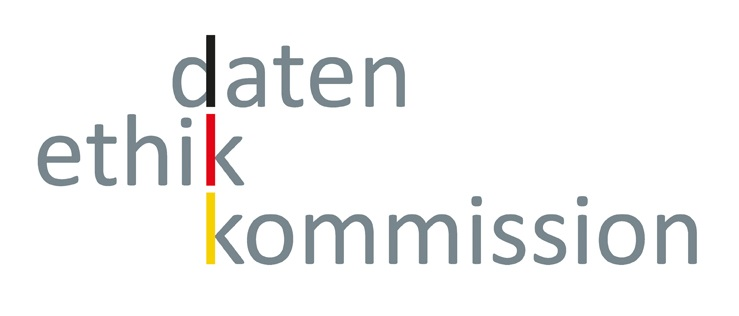
数据伦理委员会的意见:一般伦理和法律原则(Opinion of the Data Ethics Commission: General ethical and legal principles)
发布者: Data Ethics Commission, Germany
发布者类型: Governments and Intergovernmental Organizations
国家或地区: Germany
缩写: GER DEC 2019
发表日期: Oct 10, 2019

负责任人工智能的八项原则(The Eight Principles of Responsible AI)
发布者: International Technology Law Association (ITechLaw)
发布者类型: Academia, Non-profits and Non-Governmental Organizations
国家或地区: International
缩写: ITechLaw 2019
发表日期: May 23, 2019

微软人工智能原则(Microsoft AI principles)
发布者: Microsoft
发布者类型: Industry
国家或地区: United States
缩写: Microsoft 2018
发表日期: Jan 17, 2018 (unconfirmed)

北约在国防领域负责任地使用人工智能的原则(NATO Principles of Responsible Use of Artificial Intelligence in Defence)
发布者: The North Atlantic Treaty Organization (NATO)
发布者类型: Governments and Intergovernmental Organizations
国家或地区: International
缩写: NATO 2021
发表日期: Oct 22, 2021
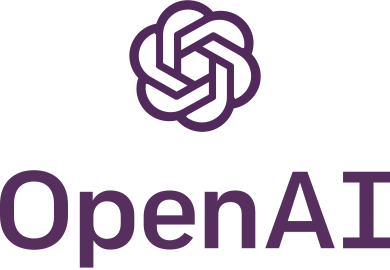
OpenAI纲领(OpenAI Charter)
发布者: OpenAI
发布者类型: Industry
国家或地区: United States
缩写: OpenAI 2018
发表日期: Apr 9, 2018

Partnership on AI:原则(Partnership on AI: Tenets)
发布者: Partnership on AI
发布者类型: Academia, Non-profits and Non-Governmental Organizations
国家或地区: United States
缩写: PAI 2016
发表日期: Sep 28, 2016 (unconfirmed)
内容列表:
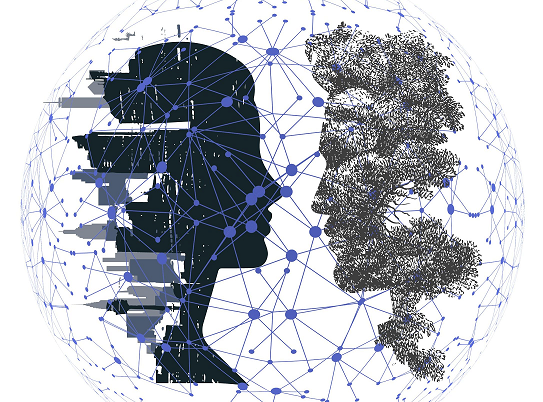
罗马关于人工智能伦理的呼吁(Rome Call for AI Ethics)
发布者: The Pontifical Academy for Life, Microsoft, IBM, FAO, the Italia Government
发布者类型: Governments and Intergovernmental Organizations
国家或地区: International
缩写: Rome Call 2020
发表日期: Feb 28, 2020

人工智能伦理原则(Principles for AI Ethics)
发布者: Samsung
发布者类型: Industry
国家或地区: South Korea
缩写: Samsung 2019
发表日期: Apr 24, 2019 (unconfirmed)

数据和人工智能伦理原则
发布者: Thomson Reuters
发布者类型: Industry
国家或地区: Canada
缩写: Thomson Reuters 2023
发表日期: 2023
内容列表:

国防部人工智能伦理原则(DoD's AI ethical principles)
发布者: Department of Defense (DoD), United States
发布者类型: Governments and Intergovernmental Organizations
国家或地区: United States
缩写: US DoD 2020
发表日期: Feb 24, 2020

沃达丰的人工智能框架(Vodafone's AI Framework)
发布者: Vodafone Group
发布者类型: Industry
国家或地区: United Kingdom
缩写: Vodafone 2019
发表日期: Jun 11, 2019

ADP人工智能伦理(ADP: Ethics in Artificial Intelligence)
发布者: ADP
发布者类型: Industry
国家或地区: United States
缩写: ADP 2018
发表日期: 2018 (unconfirmed)

负责任地使用人工智能:我们的指导原则(Responsible use of artificial intelligence (AI): Our guiding principles)
发布者: Government of Canada
发布者类型: Governments and Intergovernmental Organizations
国家或地区: Canada
缩写: Canada 2019
发表日期: 2019 (unconfirmed)
内容列表:

负责任算法的原则(Principles for Accountable Algorithms)
发布者: Fairness, Accountability, and Transparency in Machine Learning (FAT/ML)
发布者类型: Academia, Non-profits and Non-Governmental Organizations
国家或地区: International
缩写: FATML 2016
发表日期: Jul 22, 2016 (unconfirmed)

IBE在商业中使用人工智能的基本价值和原则的交互式框架(IBE interactive framework of fundamental values and principles for the use of Artificial Intelligence (AI) in business)
发布者: Institute of Business Ethics (IBE)
发布者类型: Academia, Non-profits and Non-Governmental Organizations
国家或地区: United Kingdom
缩写: IBE 2018
发表日期: Jan 11, 2018
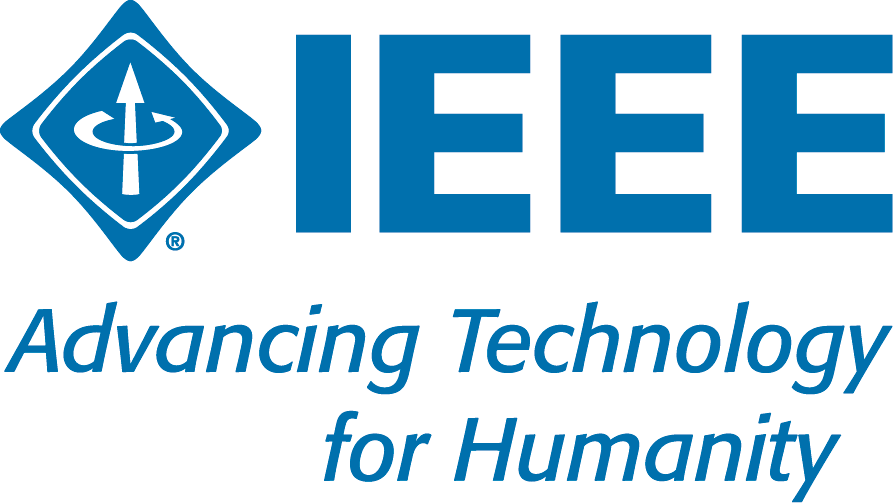
自主和智能系统在伦理方面的考量(Ethical Aspects of Autonomous and Intelligent Systems)
发布者: IEEE
发布者类型: Academia, Non-profits and Non-Governmental Organizations
国家或地区: International
缩写: IEEE 2019
发表日期: Jun 24, 2019

印度尼西亚使用人工智能(AI)的道德准则
发布者: Ministry of Communication and Informatics
发布者类型: Governments and Intergovernmental Organizations
国家或地区: Indonesia
缩写: Indonesia 2023
发表日期: Febrary 12, 2024

寻求人工智能的基本规则:建议(Seeking Ground Rules for A.I.: The Recommendations)
发布者: New Work Summit, hosted by The New York Times
发布者类型: Academia, Non-profits and Non-Governmental Organizations
国家或地区: United States
缩写: NYTimes 2019
发表日期: Mar 1, 2019

国家人工智能伦理标准(National AI Ethical Guidelines (draft))
发布者: The Ministry of Science and ICT (MSIT) and the Korea Information Society Development Institute (KISDI)
发布者类型: Governments and Intergovernmental Organizations
国家或地区: South Korea
缩写: South Korea 2020
发表日期: Nov 27, 2020

政府使用人工智能系统的七项原则(Seven principles on the use of AI systems in government)
发布者: The Treasury Board Secretariat of Canada (TBS)
发布者类型: Governments and Intergovernmental Organizations
国家或地区: Canada
缩写: TBS Canada 2018
发表日期: Jun 28, 2018 (unconfirmed)
内容列表:
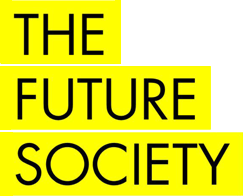
人工智能治理原则(Principles for the Governance of AI)
发布者: The Future Society, Science, Law and Society (SLS) Initiative
发布者类型: Academia, Non-profits and Non-Governmental Organizations
国家或地区: United States
缩写: The Future Society 2017
发表日期: Oct 3, 2017 (unconfirmed)
内容列表:

算法透明与问责原则(Principles for Algorithmic Transparency and Accountability)
发布者: ACM US Public Policy Council (USACM)
发布者类型: Academia, Non-profits and Non-Governmental Organizations
国家或地区: United States
缩写: USACM 2017
发表日期: Jan 12, 2017

Unity的人工智能伦理指导原则(Unity’s Guiding Principles for Ethical AI)
发布者: Unity Technologies
发布者类型: Industry
国家或地区: United States
缩写: Unity 2018
发表日期: Nov 28, 2018

人工智能伦理原则(AI Ethics Principles)
发布者: Adobe
发布者类型: Industry
国家或地区: United States
缩写: Adobe 2021
发表日期: Feb 17, 2021

通用电气医疗集团的人工智能原则
发布者: GE Healthcare
发布者类型: Industry
国家或地区: United States
缩写: GE Healthcare 2018
发表日期: Oct 1, 2018 (unconfirmed)
内容列表:

认知时代的原则(Principles for the Cognitive Era)
发布者: IBM
发布者类型: Industry
国家或地区: United States
缩写: IBM 2017
发表日期: Jan 17, 2017

信任与透明原则(Principles for Trust and Transparency)
发布者: IBM
发布者类型: Industry
国家或地区: United States
缩写: IBM 2018a
发表日期: May 30, 2018

人工智能的日常伦理:伦理关注的五个领域(Everyday Ethics for Artificial Intelligence: Five Areas of Ethical Focus)
发布者: IBM
发布者类型: Industry
国家或地区: United States
缩写: IBM 2018b
发表日期: Sep 6, 2018

建议的模型人工智能治理框架:指导原则(A Proposed Model AI Governance Framework: Guiding Principles)
发布者: Personal Data Protection Commission (PDPC), Singapore
发布者类型: Governments and Intergovernmental Organizations
国家或地区: Singapore
缩写: PDPC 2019
发表日期: Jan 23, 2019

人工智能应用开发原则
发布者: THE PRESIDENT OF THE REPUBLIC and THE CONGRESS OF THE REPUBLIC
发布者类型: Governments and Intergovernmental Organizations
国家或地区: Peru
缩写: Peru 2023
发表日期: July 5, 2023
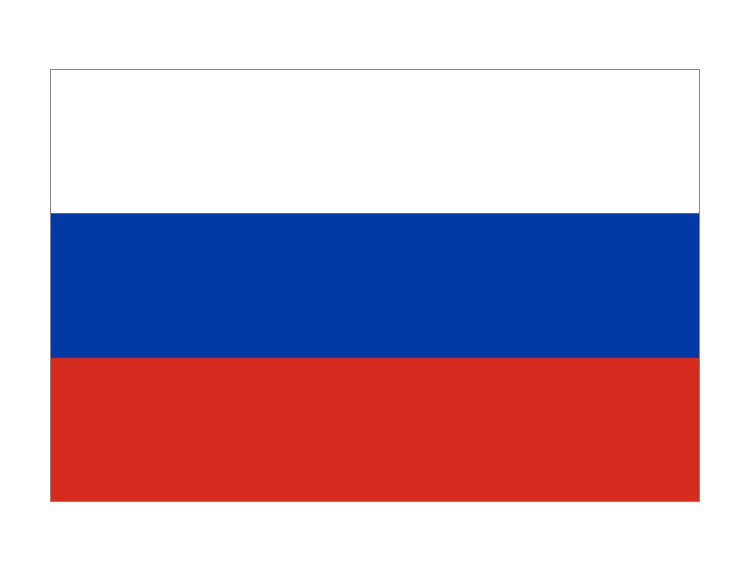
发展和使用人工智能技术的基本原则(Basic Principles of the Development and Use of Artificial Intelligence Technologies)
发布者: Office of the President of the Russian Federation, Decree of the President of the Russian Federation on the Development of Artificial Intelligence in the Russian Federation
发布者类型: Governments and Intergovernmental Organizations
国家或地区: Russia
缩写: Russia 2019
发表日期: Oct 10, 2019
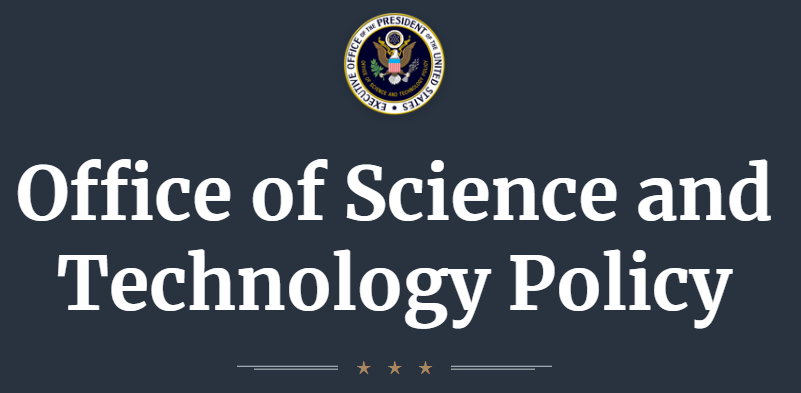
人工智能权利法案蓝图:在算法时代保护我们公民权利的愿景
发布者: OSTP
发布者类型: Governments and Intergovernmental Organizations
国家或地区: United States
缩写: US OSTP 2022
发表日期: Oct 4, 2022
内容列表:

人工智能伦理的四条原则(Four principles of AI ethics)
发布者: Robin Li, co-founder and CEO of Baidu
发布者类型: Industry
国家或地区: China
缩写: Baidu 2018
发表日期: May 26, 2018
内容列表:

OP金融集团的人工智能伦理准则(OP Financial Group’s ethical guidelines for artificial intelligence)
发布者: OP Financial Group
发布者类型: Industry
国家或地区: Finland
缩写: OP Financial 2018
发表日期: 2018 (unconfirmed)

伦理规范:人工智能商用开发的五项核心原则(The Ethics of Code: Developing AI for Business with Five Core Principles)
发布者: Sage
发布者类型: Industry
国家或地区: United Kingdom
缩写: Sage 2017
发表日期: Jun 27, 2017
内容列表:

美国人工智能倡议的5个指导原则(Five guiding principles of American AI Initiative)
发布者: The White House, United States
发布者类型: Governments and Intergovernmental Organizations
国家或地区: United States
缩写: US AI Initiative 2019
发表日期: Feb 11, 2019
内容列表:

人工智能系统的三条原则(Three Rules for Artificial Intelligence Systems)
发布者: Oren Etzioni, CEO of Allen Institute for Artificial Intelligence
发布者类型: Academia, Non-profits and Non-Governmental Organizations
国家或地区: United States
缩写: Etzioni 2017
发表日期: Sep 1, 2017
内容列表:

斯坦福以人为中心的人工智能倡议(The Stanford Human Centered AI Initiative (HAI))
发布者: Stanford University
发布者类型: Academia, Non-profits and Non-Governmental Organizations
国家或地区: United States
缩写: Stanford 2018
发表日期: Oct 19, 2018
内容列表:







